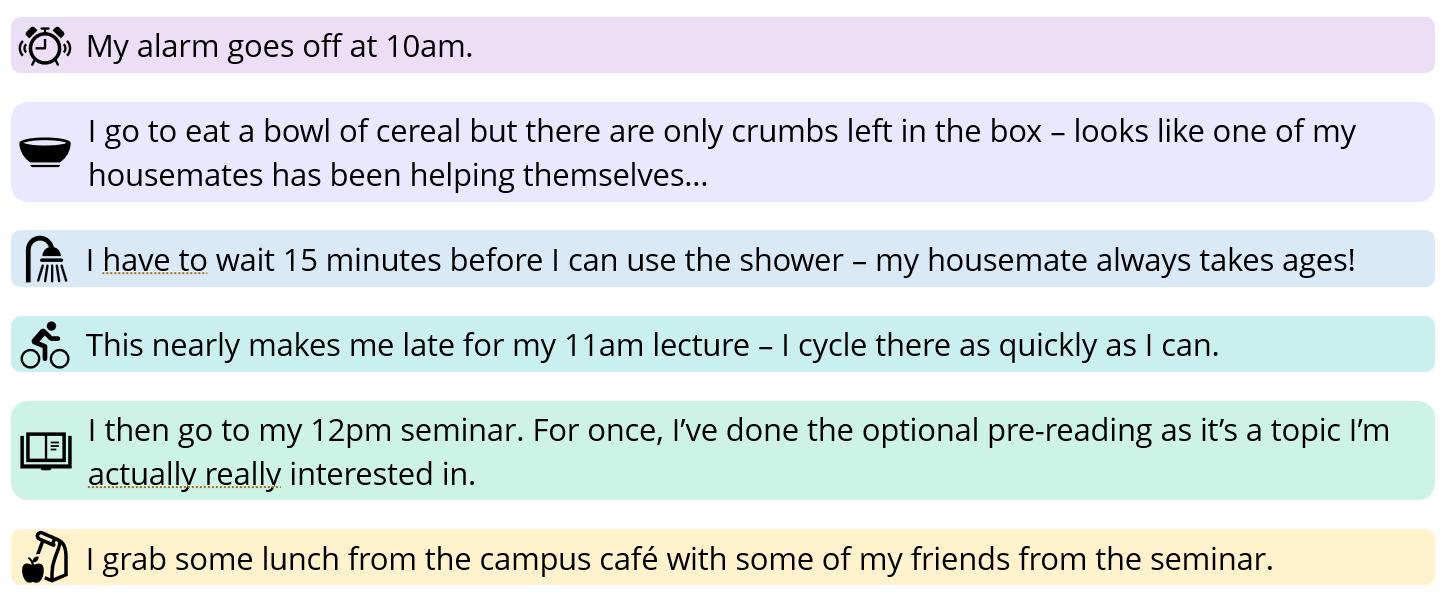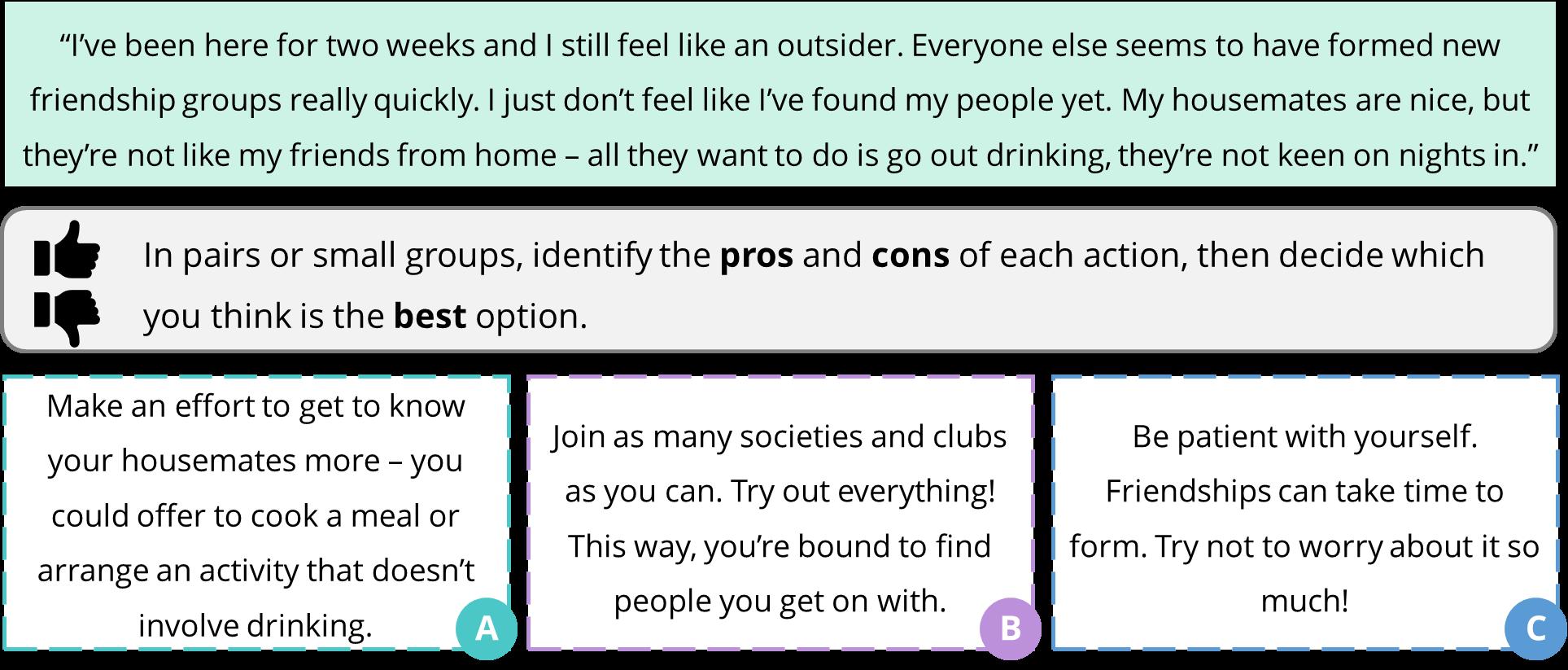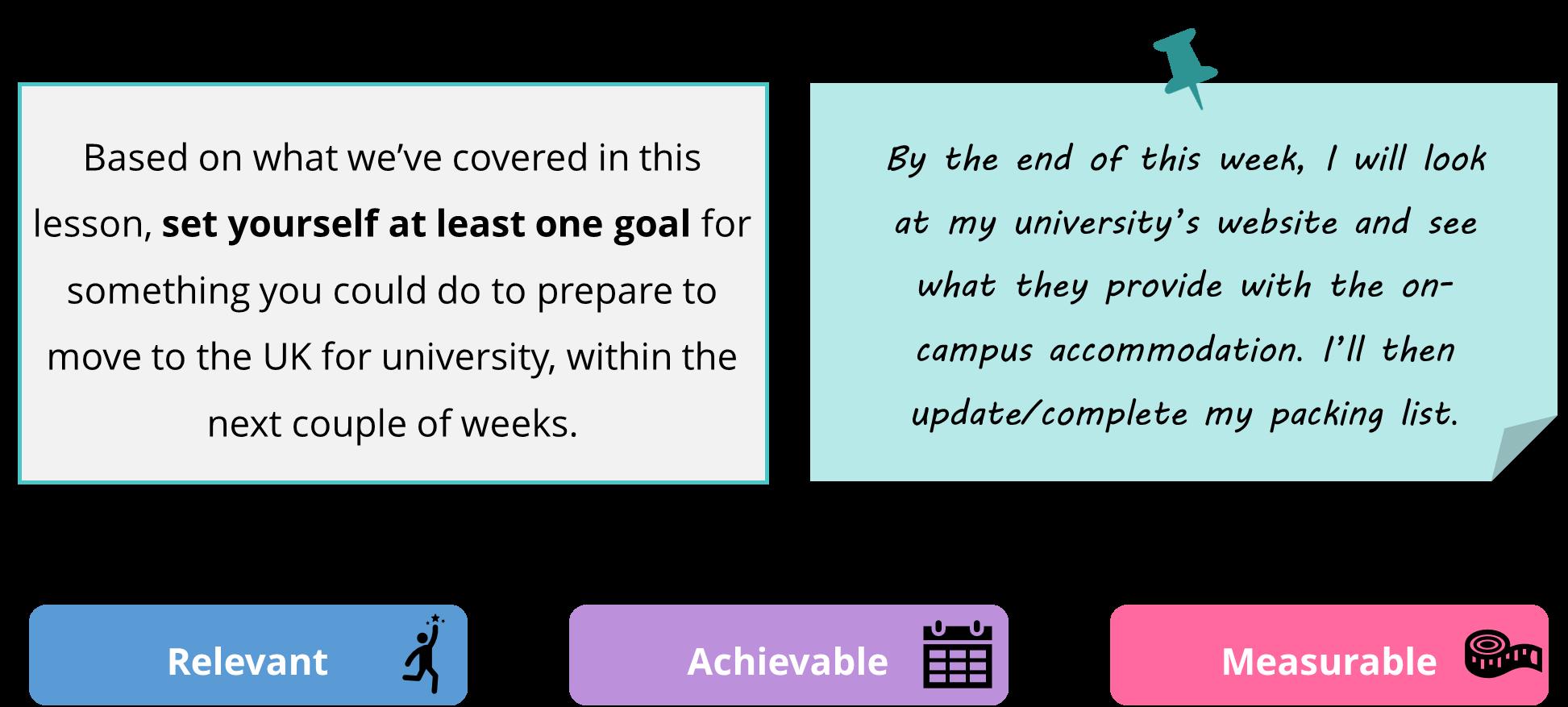





Getting ready for life after the BSP
Coping with change
Interview skills, Practice & LinkedIn
Financial Awareness

”There is nothing permanent except change”

To change something is to make it different, to transform or become different.
Change can be hard. It means a lack of certainty and predictability.
Change is necessary for growth but it’s normal to fear that we won’t cope.

Starting university can be a wonderful and exciting experience, but can bring its own unique challenges. It’s natural to feel nervous about the change.


Often our first reaction to something that scares us is to fight it and try to stop it, or we take flight and try to run away
Facing change as we go off to Uni is the first step toward making it a positive experience. Don’t fight it or ignore it. Keep a positive attitude and prepare to go with the flow.
You can’t control change, but you can control your attitude and your actions.
Change is often easier to handle when we feel we have some control and influence over what is happening. Doing something about it, being proactive, will help you feel good about the inevitable changes.
Admit if change makes you feel vulnerable & be proactive to respond to it
Find the positive. Change is good. These are exciting times


Anticipate change and plan ahead. What can you do to prepare?
Focus on possibilities. Be optimistic about outcomes. Look long term and see the big picture.
Think about past times when you have coped with change. When and how did you cope? List the things that helped.
Be flexible and don’t fight it. Recognize some stress is OK and go with the flow.
Talk about it. Focus on problems, solutions & positives. Avoid focusing solely on your feelings
Seek support. Ask friends, family, or others who have experienced similar situations or feelings
Take care of yourself. Stay healthy. Eat well, get sleep, exercise. Relax (eg yoga)
Take up new activities and learn new skills
Find humor in the situation
Trust yourself. You can do this


Allow time to adjust. New habits & routines take time to develop
Avoid obsessing about the future. Enjoy the present moment

You will be living with people you don’t know well, or alone if in a private residence
Different class schedules may create less contact time than previously used to
Its normal to get a little homesick at one point or another
Helpful to have some things to ground you while you settle in. Items that will comfort and remind you of home. E.g. pictures of friends and family and schedule regular calls.


Halls of residence great place to make new friends as lots of people going through the same experience as you.
Spend time in social areas (common areas of living halls, cafeteria etc). Its normal to feel overwhelmed at first but it soon passes!
Join social clubs, teams and societies (extensive and varied choices. eg ‘HotChocSoc’ (Edinburgh)). Normally showcased in ‘Freshers fair’ during the first weeks of term. Great way to meet people with similar interests as you.



Relatively “free” timetables does not mean no workload!
Pace of learning can be much faster and often requires additional learning outside of lectures
You are expected to manage workloads by yourself and keep motivated:
• allocate your own timing to meet each commitment or
• create a regular routine
Find the best place where you study best

Independence means balancing new found social activities with study demands.
Prioritize your mental and physical health by using some routines to stay grounded
Incorporate extracurricular routines and downtime around study routines
Keep your room and shared areas clean and tidy
Recognize everyday things that are Important and make sure you do them.

Routines help make it easier to navigate periods of change
Next two slides: example day for first year history student at a UK university


Note differences between university student lifestyle and your current lifestyle at school.


Note differences between university student lifestyle and your current lifestyle at school.
Review your list of differences and answer the questions below:










Visit UCAS mental health hub to get support: https://www.ucas.com/money-and-student-life/student-life/mental-healthand-wellbeing/mental-health-and-wellbeing-university-support
Other useful resources:
•Mind: support for adjusting to student life
•Know before you go: a guide for students
•Transitioning into university
•How to cope with student life
•The 'Making the move to university' guides: for care experienced, LGBT+, young carers, international students
•Kooth: support online and in your local area (providing NHS services).
•How to get support if you're struggling
•Student Space: trusted information & tools to guide you through the uncertainty of student life (money, relationships and social life, and academic stress and pressure)

